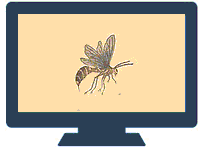Entomology, Department of

Department of Entomology: Distance Master of Science Projects
Date of this Version
2023
Document Type
Project
Citation
Master of Science Degree Project, Department of Entomology, University of Nebraska-Lincoln, 2023
Abstract
Western honey bees Apis mellifera are vital pollinators which play a significant role in global food security. Honey bees are faced by numerous environmental pressures including lack of forage which lead to large losses annually of managed honeybee colonies. To offset these pressures, many beekeepers manage colonies with the addition of artificial diets, many of which contain products that do not meet the nutritional requirements needed by honey bees or require large amounts of resources to grow. Recent literature has indicated that algae may be a viable nutritional resource for honey bees, meeting the nutritional requirements needed, requiring less resources, and having a smaller environmental footprint. However, the studies are limited and do not discuss palatability of the diet or provide much evidence for consumption. This study aimed to see if honey bees in laboratory settings were consuming diets containing algae products, how consumption compared when bees were fed modern commercial diets and natural pollen, and determining if physiological impact results matched those in the previous literature. Our findings indicated that honey bees will consume algae diets at rates similar to commercial feeds, and that some physiological results are comparable to those found in the current literature. Additionally, we discuss the implications these results could have for helping guide commercial honey bee diets in a more sustainable manner of raw material production.
Included in
Apiculture Commons, Entomology Commons, Other Nutrition Commons


Comments
Copyright 2023, Benjamin J. Nichols